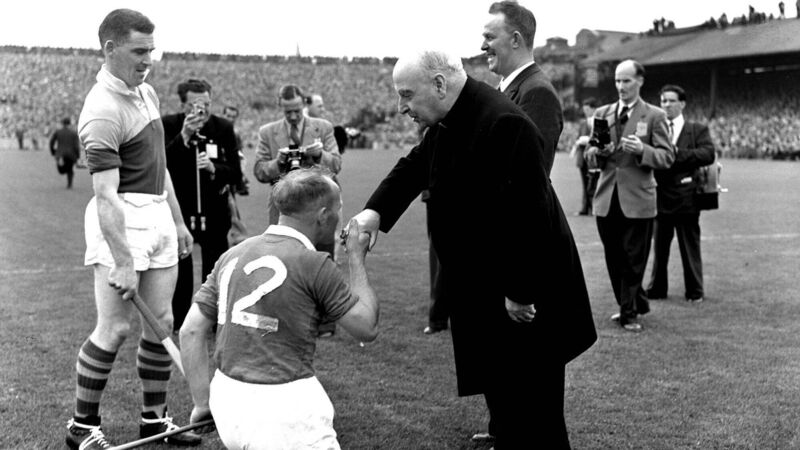Christy Ring in his own words: ‘I realised I was on an even par with my schoolboy hero when I was 20’

Christy Ring kisses the bishop’s ring before the start of the 1954 All-Ireland SHC final against Wexford at Croke Park.
Try from €1.50 / week
SUBSCRIBEJim Hayes grew up watching Christy Ring play before becoming a teacher in Scoil Barra, Beaumont in the mid-’70s.
He organised internal school hurling and football competitions and Christy Ring presented the trophies at the finals on June 26, 1975.
Already a subscriber? Sign in
You have reached your article limit.
Annual €130 €80
Best value
Monthly €12€6 / month
Introductory offers for new customers. Annual billed once for first year. Renews at €130. Monthly initial discount (first 3 months) billed monthly, then €12 a month. Ts&Cs apply.
CONNECT WITH US TODAY
Be the first to know the latest news and updates
Newsletter
Latest news from the world of sport, along with the best in opinion from our outstanding team of sports writers. and reporters
Wednesday, February 11, 2026 - 10:00 PM
Wednesday, February 11, 2026 - 10:00 PM
Wednesday, February 11, 2026 - 10:00 PM
© Examiner Echo Group Limited